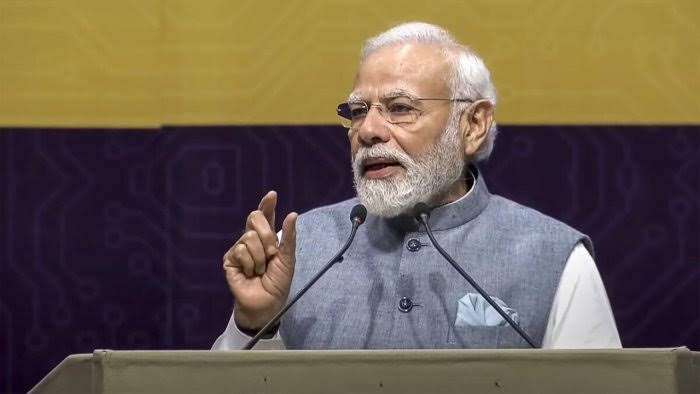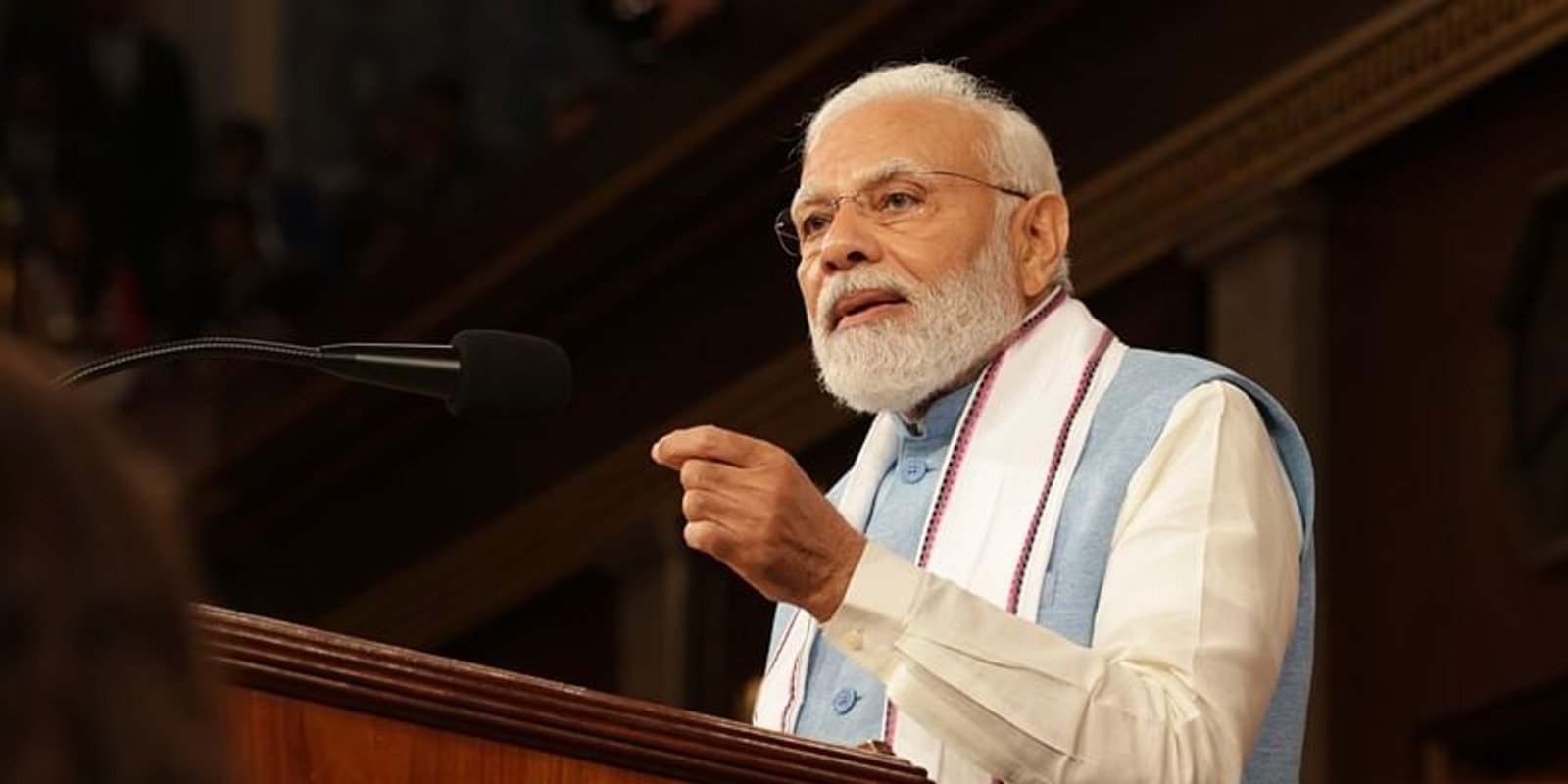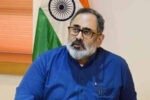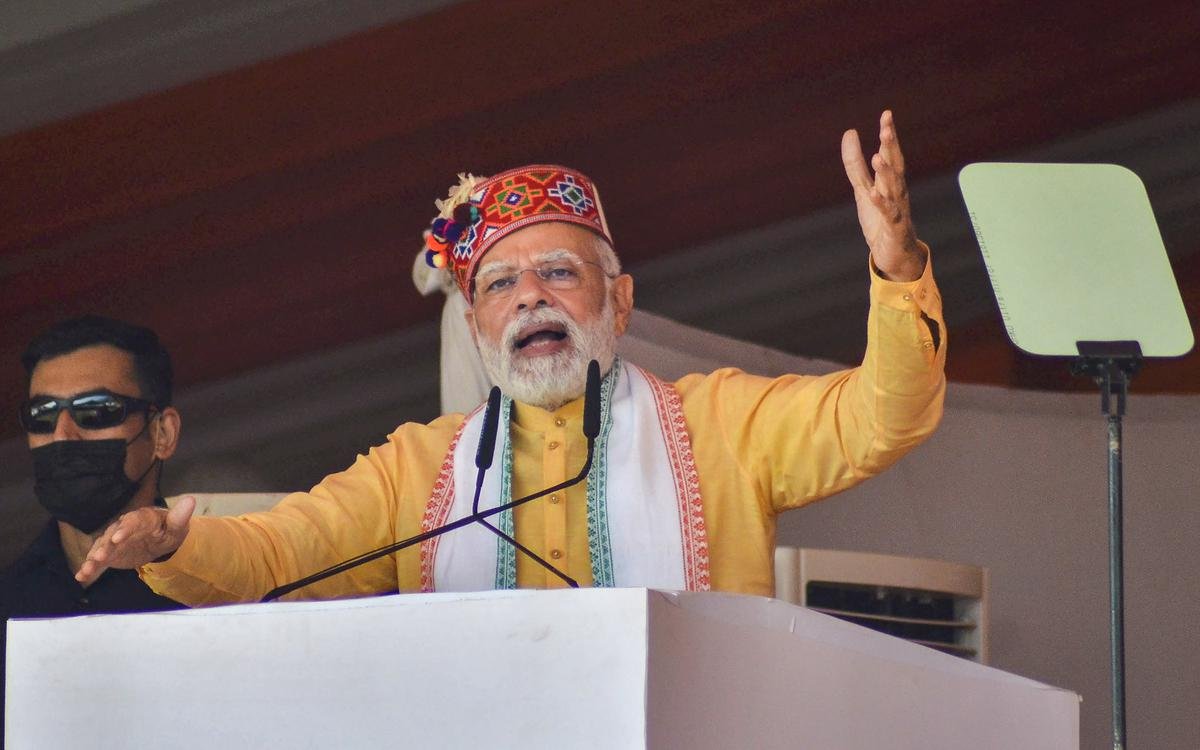GANDHINAGAR, July 28 (PTI): Technology firms will be given 50 per cent financial assistance for setting up semiconductor manufacturing facilities in the country, Prime Minister Narendra Modi said on Friday, as he announced that his government has rolled out the red carpet for semiconductor industries.
Speaking after inaugurating the Semicon India 2023 conference in Gandhinagar, Modi said every industrial revolution that the world has witnessed was driven by the aspirations of people at different times. The PM said he believes that the fourth industrial revolution being witnessed now is driven by India’s aspirations.
Modi said India is establishing an entire ecosystem for the semiconductor industry to grow in the country.
“We were offering incentives as part of the Semicon India programme. It has been increased, and now technology firms will get 50 per cent financial assistance to set up semiconductor manufacturing facilities (in India),” Modi said.
The semiconductor industry will witness exponential growth in India, Modi said.
“A year ago, people used to ask why they should invest in the Indian semiconductor sector. Now they ask why not invest in India,” he added.
India is becoming a grand conductor for investments in the semiconductor sector, Modi said.
The world needs a trusted and reliable chip supply chain, he said.
Modi said 300 colleges in India have been identified for starting courses on semiconductor design.
“Today the world is becoming witness to Industry 4.0. Whenever the world has passed through any such industrial revolution, its base has been the aspirations of the people of a particular region. The same relation was seen between the first industrial revolution and the American dream,” he said.
“Today I see the same relation between the fourth industrial revolution and Indian aspirations,” said Modi, who shared the dais with some world leaders of the semiconductor industry.
The PM said Indian aspirations are driving the country’s development and have made it a nation that has rapidly eradicated extreme poverty and seen a fast rise of the “neo-middle class”.
Modi said India understands its “global responsibility” very well.
“Therefore, we are working on a wide roadmap together with our friendly countries. We are taking special efforts to create a semiconductor ecosystem in India,” he said, adding that the country recently approved the ‘National Quantum Mission’ and is going to introduce the Nation Research Foundation Bill in Parliament.
The National Quantum Mission aims to seed, nurture and scale up scientific and industrial research and development and create a vibrant and innovative ecosystem in quantum technology.
“For the semiconductor ecosystem, we are changing the engineering curriculum. India has identified more than 300 big colleges where courses will be offered on semiconductors. It is expected that in the next five years, we will have more than 1 lakh design engineers. India’s continuously growing startup ecosystem will also provide strength to the semiconductor sector,” Modi said.
Underscoring that electricity is required for this sector, Modi said the country’s installed solar power capacity has multiplied 20 times in the last decade.
India has set a target for 500 gigawatts of renewable energy capacity by the end of this decade and has taken big steps for the production of solar PV (photovoltaic) models, green hydrogen and electrolysers, he said.
“Policy reforms happening in India will also have a positive impact in sharpening the semiconductor ecosystem,” Modi said.
“For a new manufacturing industry, we have announced different types of tax reliefs. India is today among the countries with the lowest corporate tax. We have made the taxation process faceless and seamless,” he said.
Modi said his government has done away with many old laws and compliances that were coming in the way of the ease of doing business and has provided special incentives for the semiconductor industry.
“These decisions and policies reflect the fact that India is paving the red carpet for the semiconductor industry. As India progresses on the path of reform, more new opportunities will be created for you. For the semiconductor industry, India is becoming a grand conductor,” he said.
Amid its efforts, India also understands the requirement of the global supply chain, Modi said.
“We understand your requirements regarding raw material, trained manpower and machinery. Therefore, we are excited to work together with you,” he said.
Modi said that as the world emerges from a global pandemic and Russia-Ukraine crisis, the world cannot field a more trusted partner than the biggest democracy for a reliable chip supply chain for semiconductors.
He said investors trust India because of its “stable, responsible and reform-oriented government”, and because of the progress India has made in various sectors and infrastructure. The semiconductor industry trusts India because of its massive talent pool, skilled engineers and designers, he said.
“All those who want to be a part of the world’s most vibrant and unified market trust India. Make In India also includes make for India and make for the world,” he said.
Modi said digital infrastructure and seamless power supply are increasing digital production and consumption in India, and from health to agriculture to logistics, India is working on a big vision related to the use of smart technology.
“For the markets full of possibilities in India, you have to develop chip making. And I am certain that those who go ahead fast are set to get the first movers’ advantage,” he said. Opportunities galore in 21st century India, and India’s “democracy, demography and dividend are going to double-triple the business of the first movers”, the prime minister said.
He said his government is continuously making policy reforms to give pace to the growth of the country’s semiconductor sector.
“Even as the G20 president, the theme given by India is ‘One Earth, One Family, One Future’. These are our feelings behind making India a semiconductor manufacturing hub. India wants its skill, capacity and capability to benefit the world. We want to increase India’s capacity for a better world and for global good. In this, your participation, suggestions and thoughts are welcome,” he said.
Modi said people here are tech-friendly and fast in adopting technology, and cheap data, quality digital infrastructure and seamless power supply have increased digital production and consumption manifold.












